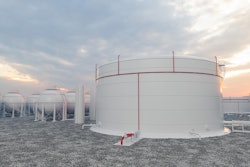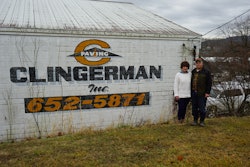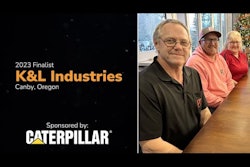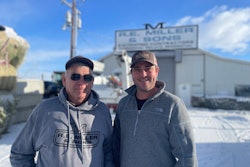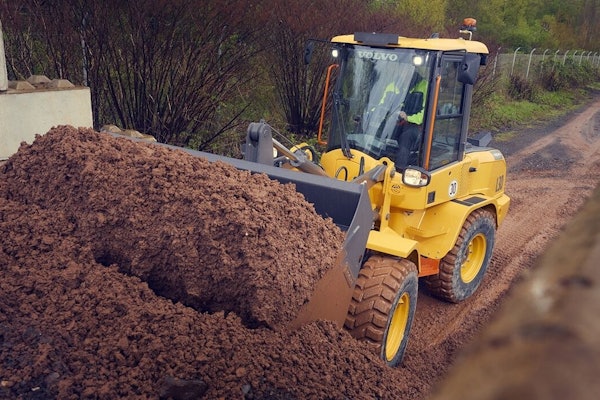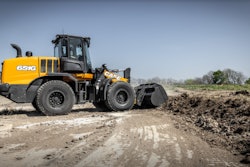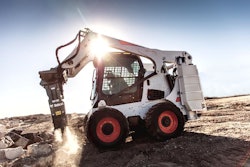For more than 30 years, Marsha Hudgins had a successful career as a business consultant. She was ready to ease into retirement when her husband, Lester, received a harrowing diagnosis: pancreatic cancer.
“Promise me you won’t shut the business down,” Lester said.
The business, Hudgins Contracting Corporation, had been started by Lester at age 29, and for the sake of his employees, he couldn’t bear to see it end with his life.
That was 12 years ago. Since then, despite her lack of experience in the construction industry, Marsha has excelled as president of the $11 million to $13 million firm, which specializes in government and private commercial site preparation and infrastructure construction. Hudgins Contracting is one of 12 finalists for Equipment World's 2023 Contractor of the Year program.
Tapping into her consulting background, Marsha took a deep dive into the business operations, breathing new life into fleet management and talent acquisition.
“He had a different belief system than I did about how companies should operate,” she says. “It took years to make that evolution, but now we have asset and people management that is much more efficient and less costly.”
Now armed with an upgraded fleet of equipment and top-notch employee development and safety programs, Hudgins is ready to tackle the next 50 years in business.
“We give our talented people the opportunity to grow,” Marsha says. “There’s space for them to move up and to explore their goals for themselves. Our people are who we are. It’s every person who puts on a Hudgins hard hat or sits in an office.”
Those happy, fulfilled employees mean happy customers, too. Says one general contractor, “Hudgins always maintains a good positive image with their equipment and brand by always putting their best foot forward. They’re team players who work cooperatively with other trades onsite.”
The Contractor of the Year program recognizes contractors who display the highest standards of business acumen, equipment management expertise, attention to safety and community involvement. Each year, 12 finalists receive an expense-paid trip to Las Vegas to participate in roundtable discussions and an awards ceremony. To be notified when the 2024 nomination period opens, click here.
Equipment World serves up weekly videos on the latest in construction equipment, work trucks and pickup trucks – everything contractors need to get their work done. Subscribe and visit us at equipmentworld.com!
Contents of this video:
00:00 Hudgins Contracting company History
03:04 Fleet Management Philosophy
04:35 Talent Development
05:37 Training
06:17 Training Program
Marsha Hudgins:
Before I knew my husband, when he was 29 years old, I was still in college, he decided he wasn't meant for college because he just wanted to go out and make money. So he decided he wanted to be a general contractor, and so he started himself with a group of guys and got some investors and went to work and built his business as a GC. And he was very successful at it because he worked really, really hard and he was an entrepreneur at heart. He learned a lot about business management. When I met him in the '80s, early '80s, he was successful, already had an MBA, and I was doing consulting for businesses and stuff. We would talk business, and he's the only guy I ever dated that could talk about regression analysis and KPIs because he was self-taught.
Things got really hairy at the beginning of the '90s, end of the '80s, beginning of the '90s. So at that point, we made a very difficult decision, or actually he did and with the company employees, to switch from being a general contractor, where the risk was much higher, to a subcontractor, where you were controlling your own work as opposed to a lot of other subs. And it was like a startup, but with people in place, equipment already in place, so the focus was in developing that.
And he did that extraordinarily well for right up through this recession, 2008. And still they were such a good organization at that point, that they survived and did not lose money during the recession. Unfortunately, in 2010, my husband got the diagnosis of pancreatic cancer, and by 2011, he was gone. That was not a fun time for anybody, but during that time, he and I talked a lot. He said he wanted the company to keep going. He really didn't want it to be shut down.
I was a little scared when I came in. It's a high risk business, and we were in the middle of a recession. Where in my financial planning did that exist? It didn't. It wasn't. But I've always been a problem solver, that's my strength, to be able to see beyond something and see the bigger picture and be a problem solver. I do my best work with teams. Truth is we all do our best work with teams, because no person is so talented and able, that they excel in all of those areas. So when you put a team together and you work with each other, not competitively, you're much better, much stronger and much more able.
When my husband died and I came in, he had a different belief system than I did about how companies should be operated. So all the equipment was bought usually at auction. Grey iron came in here pretty quickly. I'm not sure he was even aware of that, but he would go to the auctions because he liked to do that and he would buy stuff, didn't necessarily bring his [inaudible 00:03:29], I mean, made his own decision, but it was always about keep it on the road and it's free if it's paid off. Not my philosophy, not at all. So Ben helped me switch slowly those pieces out and start to have a real plan of how and why and when we replaced things and what we replaced them with.
And it took years to make that evolution. But now we have asset management that is much more efficient and in the end, it's less costly. If you have the dollars invested in your company in equipment that most of us size do, it behooves you to pay attention to if you're getting the best use out of it and what it actually costs you in hard costs, but also soft costs, opportunity losses, because machines down and you can't finish that day and you have to put it off for another day, you'll get off the job.
We bring a lot of talent and a lot of companies do, but I think we manage our talent well. We give our talent people opportunity to grow. There's space for them to move up to explore their goals for themselves, their opportunities. We believe strongly that our people are who we are. If you want to know who Hudgins is, I'll take you out and I'll show you who Hudgins is and doesn't sit in this office. Hudgins is everybody that puts on a vest, everybody puts on a hard hat. Everybody who comes in and sits in front of a computer, every single person we have has a very specific job, and yet we cross-train them for a lot of different things, but we invest in them.
They want to go to school, we're there. We'll help them out with that. If they want to go out and get a further education and on some other issue or a safety issue or something like that, we cover it. They have ideas, they come into me, they tell me what their ideas are and we'll act on it.
Pam Kelly:
We do two meetings a year where everyone comes. We rent a room at a hotel and we bring speakers. We play games that mix the office with the field. We do door prizes. We recognize in the fall work, five year increment, anniversaries, attendance awards. We usually have a safety speaker. We do safety training, CPR, first aid, competent person, confined space every year so they know that they're safe. They know that the new people we've brought in are now trained.
Marsha Hudgins:
We have a training program, and in fact, we tell people when they come in, we can offer you a career, not just a job. Some people just want a job and that's okay. But if you're young and you don't know what you want to do in life and you don't mind being outside, again, this is not the easiest job to fail, but you enjoy being outside. We can offer you a place to grow and place to learn. You can start at the very bottom. As many of our people in years gone by did exactly that. They started at the bottom and they work all the way to the very top from minimum wage to, with bonus, probably six figures, putting kids through college, buying a nice home. I mean, that's not for everybody because not everybody has the ability or that desire.
Pam Kelly:
Desire, yeah.
Marsha Hudgins:
But it's there.
Jordanne Waldschmidt.:
Now is a good time to mention that if you want to see more content like this, subscribe and click the bell icon so you can see when we post more videos.

